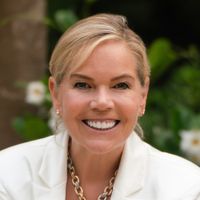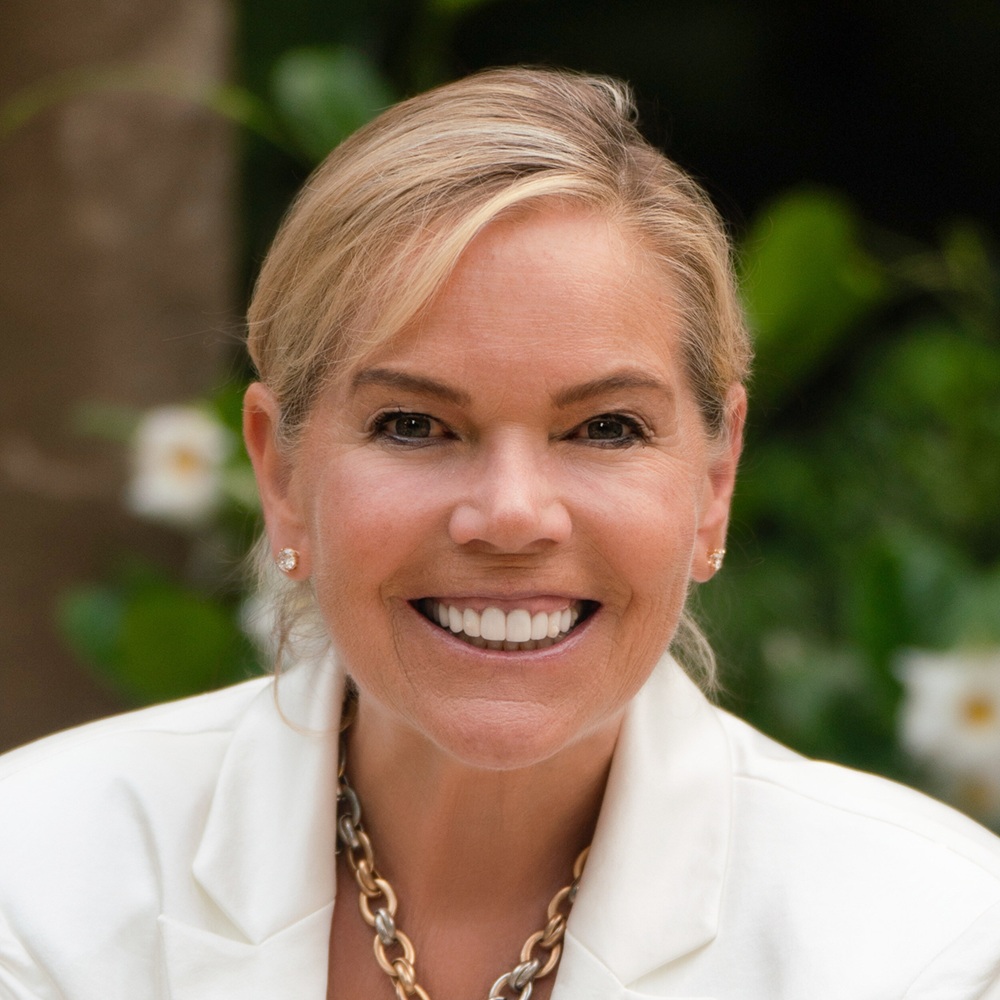Want to Retire Abroad? Five Things to Know About Your Money
To prevent your retirement dream from becoming a nightmare, you should carefully consider the logistical and financial hurdles of retiring outside the U.S.


Profit and prosper with the best of Kiplinger's advice on investing, taxes, retirement, personal finance and much more. Delivered daily. Enter your email in the box and click Sign Me Up.
You are now subscribed
Your newsletter sign-up was successful
Want to add more newsletters?

Delivered daily
Kiplinger Today
Profit and prosper with the best of Kiplinger's advice on investing, taxes, retirement, personal finance and much more delivered daily. Smart money moves start here.

Sent five days a week
Kiplinger A Step Ahead
Get practical help to make better financial decisions in your everyday life, from spending to savings on top deals.

Delivered daily
Kiplinger Closing Bell
Get today's biggest financial and investing headlines delivered to your inbox every day the U.S. stock market is open.

Sent twice a week
Kiplinger Adviser Intel
Financial pros across the country share best practices and fresh tactics to preserve and grow your wealth.

Delivered weekly
Kiplinger Tax Tips
Trim your federal and state tax bills with practical tax-planning and tax-cutting strategies.

Sent twice a week
Kiplinger Retirement Tips
Your twice-a-week guide to planning and enjoying a financially secure and richly rewarding retirement

Sent bimonthly.
Kiplinger Adviser Angle
Insights for advisers, wealth managers and other financial professionals.

Sent twice a week
Kiplinger Investing Weekly
Your twice-a-week roundup of promising stocks, funds, companies and industries you should consider, ones you should avoid, and why.

Sent weekly for six weeks
Kiplinger Invest for Retirement
Your step-by-step six-part series on how to invest for retirement, from devising a successful strategy to exactly which investments to choose.
The dream of retiring outside the U.S. is becoming a reality for more Americans. You may see your standard of living rise in a country like Norway or Iceland, or maybe you envision a healthier lifestyle in the warm and sunny climates of Costa Rica, Portugal or Mexico. The reasons to retire abroad are as diverse as the destinations themselves.
As of 2021, the Social Security Administration reported that nearly 450,000 individuals were receiving their benefits outside the United States, marking a notable increase from the 307,000 recipients in 2008. However, the actual number of retirees living abroad is likely even higher.
This suggests that a lot of Americans are choosing to spend their retirement years outside the U.S., seeking a life that might not be possible at home. However, embarking on such an adventure is not without its challenges. There are financial implications and logistical hurdles that must be navigated carefully to avoid turning a dream retirement into a stressful ordeal.
From just $107.88 $24.99 for Kiplinger Personal Finance
Become a smarter, better informed investor. Subscribe from just $107.88 $24.99, plus get up to 4 Special Issues

Sign up for Kiplinger’s Free Newsletters
Profit and prosper with the best of expert advice on investing, taxes, retirement, personal finance and more - straight to your e-mail.
Profit and prosper with the best of expert advice - straight to your e-mail.
To help you create your glide path, here are the five key aspects to consider before making the leap.
1. Your cash accounts
When retiring outside the U.S., it’s important to understand what’s different about the other country’s banking system.
Brett Spencer, a fee-only financial adviser and founder of Impact Financial who specializes in helping retirees overseas, advises that a crucial step before making the move is to set up a local bank account months before you make the move. Believe it or not, opening a foreign checking account is a slow process. This proactive measure is essential due to the reluctance of some international banks to work with Americans, coupled with the potential longer-than-expected delays in setting up basic banking services. The last thing you want is to assume you’ll have cash in the bank only to find out your account won’t be established for several weeks.
That’s even more reason to get up to speed on options for transferring money. For international money transfers, selecting services known for their low fees can help preserve your savings. A popular option is an international service called Wise. It’s also wise to review your credit card’s foreign transaction fees, which can be as high as 1% or more. Opting for credit cards that don’t levy currency conversion fees for local purchases, while paying the balances from a U.S. account, is another cost-saving measure.
Moreover, the impact of currency exchange rate fluctuations over time cannot be overstated, as they can significantly influence your cost of living abroad.
2. Your taxes
Will moving to a cheaper country really save you money when you factor in taxes?
As a U.S. citizen, you’re on the hook for taxes on your global income, with obligations to file stateside no matter where you live. While there are exclusions for foreign-earned income, these don’t apply to retirement or investment income, meaning your tax situation could get complicated.
If your new home country has a tax treaty with the U.S., you might dodge double taxation or qualify for credits on your U.S. tax return for taxes paid abroad. Yet, be prepared for different tax structures, including possible wealth taxes, though some countries offer sweet tax deals for U.S. retirees. Many expats manage to lower their U.S. tax bills thanks to credits or exclusions for overseas income, but remember, filing U.S. taxes is a must to claim these benefits.
Spencer highlights the strategic use of the standard deduction alongside the foreign earned income exclusion as a pathway to substantial savings. “It’s crucial to ensure you’re fully leveraging the tax benefits available to you,” he advises.
For instance, by optimizing unused standard deductions, one of his clients was able to achieve tax-free portfolio gains, resulting in significant savings. Spencer emphasizes the importance of utilizing all available tax advantages and carefully considering the tax implications in both the U.S. and the host country.
3. Your savings and investments
When it comes to your savings and investments, you should consider consulting with a fee-only adviser who’s savvy in expat retirement planning. That’s because you’ll need to weigh whether to keep your investments stateside or venture into foreign markets, which involves having accounts denominated in local currencies. Again, as a U.S. citizen, foreign accounts bring a layer of IRS reporting, with steep penalties for any slip-ups in filing or underreporting.
Many expats may opt to keep the lion’s share of their assets in U.S.-based accounts, simplifying compliance and avoiding potential tax headaches associated with foreign investments. And if you’re thinking about diving into foreign mutual funds, tread carefully. They come with a complex tax rulebook.
Also, give thought to your Roth IRA; not all countries treat it as kindly as the U.S., with potential taxes on distributions and wealth taxes on account value. Some expats face tax rates north of 50% abroad on what would be tax-free withdrawals in the States.
Spencer also makes it a point to remind those retiring abroad they’ll likely need a whole new round of estate planning documents to align with their new home’s laws on asset distribution.
4. Your real estate decisions
Choosing whether to buy or rent in a new country involves more than just comparing costs and locations. It’s crucial to also consider factors such as political stability and safety, both currently and in the future.
Take Ecuador, for instance, once hailed as an idyllic spot for retirees seeking tranquility and affordability. However, recent headlines highlight a disturbing surge in crime, making potential buyers pause and reconsider.
Before making any commitments, spend ample time in your chosen locale to grasp the full picture, from the charm of local life to the potential risks and restrictions on property ownership. Scams and legal complexities abound, and the promise of freedom in owning a piece of paradise could quickly morph into an anchor of responsibility and worry.
5. Your health care expenses
Health care is a pivotal factor in the retirement-abroad equation, especially given that medical costs often outpace core inflation in the U.S.
Many retirees venture overseas with visions of significant health care savings. But what’s the real picture? Quality and true costs can vary dramatically, and it’s essential to remember that Medicare won't cover you outside the U.S.
Therefore, dive into the health care system of your potential new home. Understand what it covers, how it functions and assess the quality and gaps. Furthermore, consider which parts of Medicare you might want to retain, providing a safety net should you decide to return stateside.
With careful planning and insight into these five areas, you can confidently step into your next chapter — and new country — fully prepared for the adventures ahead.
Related Content
- Five Things I Wish I’d Known Before I Retired
- Retirement Tips for 2024 From Five Retirement Experts
- The Five Stages of Retirement (and How to Skip Three of Them)
- Six Financial Actions to Take the Year Before Retirement
- Retirees’ Anti-Bucket List: 10 Experiences You Don’t Want
Profit and prosper with the best of Kiplinger's advice on investing, taxes, retirement, personal finance and much more. Delivered daily. Enter your email in the box and click Sign Me Up.

With more than 25 years in investor advocacy, Pam Krueger is the founder and CEO of Wealthramp, an SEC-registered adviser matching platform that connects consumers with rigorously vetted and qualified fee-only financial advisers. She is also the creator and co-host of the award-winning MoneyTrack investor-education TV series, seen nationally on PBS, and Friends Talk Money podcast.
-
 Ask the Tax Editor: Federal Income Tax Deductions
Ask the Tax Editor: Federal Income Tax DeductionsAsk the Editor In this week's Ask the Editor Q&A, Joy Taylor answers questions on federal income tax deductions
-
 States With No-Fault Car Insurance Laws (and How No-Fault Car Insurance Works)
States With No-Fault Car Insurance Laws (and How No-Fault Car Insurance Works)A breakdown of the confusing rules around no-fault car insurance in every state where it exists.
-
 7 Frugal Habits to Keep Even When You're Rich
7 Frugal Habits to Keep Even When You're RichSome frugal habits are worth it, no matter what tax bracket you're in.
-
 For the 2% Club, the Guardrails Approach and the 4% Rule Do Not Work: Here's What Works Instead
For the 2% Club, the Guardrails Approach and the 4% Rule Do Not Work: Here's What Works InsteadFor retirees with a pension, traditional withdrawal rules could be too restrictive. You need a tailored income plan that is much more flexible and realistic.
-
 Retiring Next Year? Now Is the Time to Start Designing What Your Retirement Will Look Like
Retiring Next Year? Now Is the Time to Start Designing What Your Retirement Will Look LikeThis is when you should be shifting your focus from growing your portfolio to designing an income and tax strategy that aligns your resources with your purpose.
-
 I'm a Financial Planner: This Layered Approach for Your Retirement Money Can Help Lower Your Stress
I'm a Financial Planner: This Layered Approach for Your Retirement Money Can Help Lower Your StressTo be confident about retirement, consider building a safety net by dividing assets into distinct layers and establishing a regular review process. Here's how.
-
 The 4 Estate Planning Documents Every High-Net-Worth Family Needs (Not Just a Will)
The 4 Estate Planning Documents Every High-Net-Worth Family Needs (Not Just a Will)The key to successful estate planning for HNW families isn't just drafting these four documents, but ensuring they're current and immediately accessible.
-
 Love and Legacy: What Couples Rarely Talk About (But Should)
Love and Legacy: What Couples Rarely Talk About (But Should)Couples who talk openly about finances, including estate planning, are more likely to head into retirement joyfully. How can you get the conversation going?
-
 How to Get the Fair Value for Your Shares When You Are in the Minority Vote on a Sale of Substantially All Corporate Assets
How to Get the Fair Value for Your Shares When You Are in the Minority Vote on a Sale of Substantially All Corporate AssetsWhen a sale of substantially all corporate assets is approved by majority vote, shareholders on the losing side of the vote should understand their rights.
-
 How to Add a Pet Trust to Your Estate Plan: Don't Leave Your Best Friend to Chance
How to Add a Pet Trust to Your Estate Plan: Don't Leave Your Best Friend to ChanceAdding a pet trust to your estate plan can ensure your pets are properly looked after when you're no longer able to care for them. This is how to go about it.
-
 Want to Avoid Leaving Chaos in Your Wake? Don't Leave Behind an Outdated Estate Plan
Want to Avoid Leaving Chaos in Your Wake? Don't Leave Behind an Outdated Estate PlanAn outdated or incomplete estate plan could cause confusion for those handling your affairs at a difficult time. This guide highlights what to update and when.